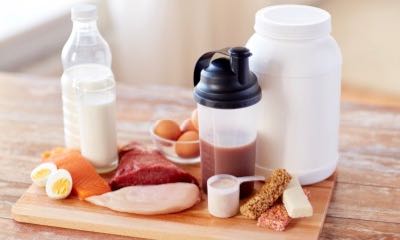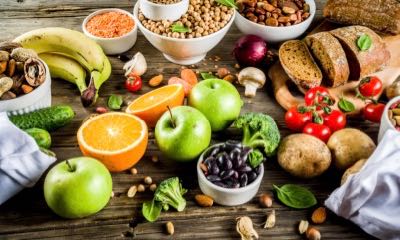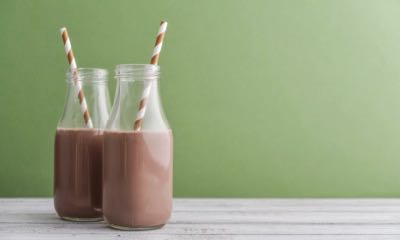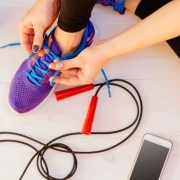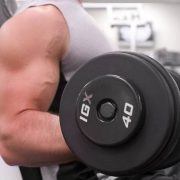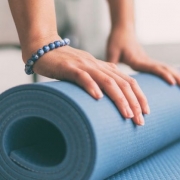Post-Workout Meals—What to Eat and When to Eat It
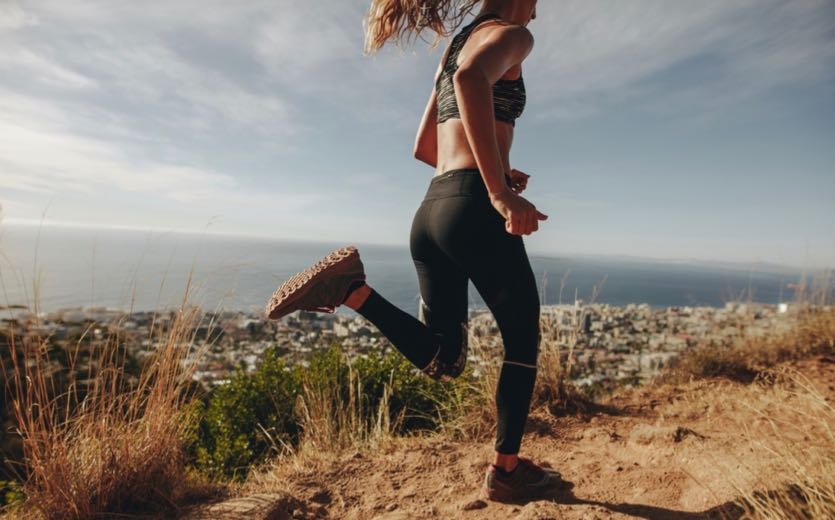
Taking the time and effort to exercise is an important first step. But, that’s only half the battle. Whether you want to lose weight, build muscle, or compete in your first triathlon, your diet is critical for success. The food you eat serves as the fuel for your workout and building blocks for your muscles. It would be a waste to follow the perfect fitness routine and ignore nutrition. The saying is true—“You are what you eat”—especially with your pre- and post-workout meal.
Before you exercise, it’s all about fueling your fitness. But if you’ve looked into what to eat after working out or read about post-workout meals, it’s a different conversation. You might run across concepts like nutrient timing and carbohydrate-to-protein ratios. This article will highlight the research on when you should eat your post-workout meal, and the nutrients that you should focus on.
| Nutrition for the Rest of the Day |
When Should You Eat Your Post-Workout Meal?
Eating after exercise can be pretty intuitive. That comes mostly for one reason, you’re likely to be hungry. This is because your body just used a bunch of calories and wants to refuel itself. Exercise also breaks down muscle, and you need to eat protein to rebuild it.
The hunger you may feel after exercise isn’t the only guiding force for your post-work meal. Science also shows you should eat after exercise.
Some of the first researchers on the subject gave athletes chocolate milk post-workout (more about the nutrients in this “ideal” drink later). Chocolate milk improved energy and muscle recovery compared to those who had nothing after exercise. The timing of the milk was key to these benefits.
The window you have to eat after a workout for maximum benefit is referred to as “nutrient timing.” Most of the early research had test subjects eating their post-workout meal immediately after exercise, 15 minutes after, or 30 minutes after. This is why you might have heard people say you should eat within 30 minutes of your workout. However, most of these early studies didn’t do a comparison to more delayed time periods.
Recent studies have expanded on the early studies. Researchers tested eating one hour and up to two hours after exercise. They also examined the difference between fasted exercisers compared to those who had a pre-workout meal. The results turn out to be more involved than “eat within 30 minutes of your workout.”
What the Research Says
The results show a post-workout meal is more important in certain situations. It’s most important if you start your workout fasting or with only a small pre-workout meal. Like if you exercise in the morning, before breakfast.
A post-workout meal is also more critical if you’re on a calorie-deficit diet (losing weight). This means those trying to lose weight, should ration some calories for immediately before and after a workout.
The benefits are less pronounced if you started with a large pre-workout meal or your diet has a calorie surplus (gaining weight). But you still see some benefits from eating a post-workout meal, and should plan one.
The newer studies remove the urgency on the timing of your post-workout meal, though. So, you don’t need to rush straight from the gym to the kitchen. You can eat immediately, or wait up to two hours after exercise and still receive the benefits of a post-workout meal.
The Nutrients to Eat After Working Out
As you already know, your body needs food for energy and to use as building blocks. Physical activity increases those needs. But those needs don’t increase equally for all nutrients. Some play a much larger role in recovery and muscle growth than others.
Protein
Protein is the building block for the muscles in your body. Muscle is broken down when you exercise, and your body needs dietary protein to rebuild itself. Exercise also triggers extra muscle growth. That’s why weightlifting makes you stronger. This creates an even greater need to eat more protein and makes it one your top priorities after exercise.
Your protein needs depend on your size and the amount of protein you eat throughout the rest of the day. Aim for 20–40 grams (0.25-0.40 g/kg body mass) of protein after exercise. If you’re a smaller person, aim for 20 grams. A larger person would need closer to 40 grams of protein after exercise.
In addition to protein after your workout, you should try to eat that same amount of protein (20-40 grams) four to five more times throughout the day.
Focus on high-quality protein sources that contain all the essential amino acids. Some of the best sources of complete protein are milk, eggs, soy protein, and meat. Protein digestibility-corrected amino acid score (PDCAAS) is a tool for measuring protein quality. It will help you know which protein-rich foods to focus on.
Carbohydrates
Just as protein is needed to repair broken-down muscle, carbohydrates are required to replenish expended energy. Glycogen—stored glucose—is your primary source of energy for the first hour of exercise. The longer and harder you work out, the more your glycogen storage deplete. You will have to eat more carbohydrates to replenish it.
The research conducted 15+ years ago suggested consuming carbohydrates in 3:1 to 6:1 ratio compared to protein. While this is still valid, more recent research suggests you should take into account the exercise done and your overall daily diet.
Eating carbs can start before and during your workout. Eating them before exercise will help fuel your workout and maximize its potential. If you plan a long, difficult workout, also add some carbs along the way.
For post-workout carbs, you need to look at how many calories you plan to eat for the day. Refueling with carbs is important after a workout. But eating too many carbs right after a workout could quickly use up your day’s calories. This is especially true if you’re trying to lose weight. Prioritize protein first, then add carbohydrates as your calorie budget allows.
If you aren’t trying to lose weight and just finished a really hard workout, a few hundred grams of carbs might be appropriate. But you should eat fewer carbs (less than 50g) if your workout wasn’t particularly hard and you’re trying to lose weight.
Fat
Fat doesn’t play as direct of a role in exercise recovery as protein or carbohydrates. Too much fat can, in fact, slow down the absorption of the protein and carbs your body needs. That doesn’t mean you should avoid it, though.
Feel free to eat a mixture of high-protein and high-carbohydrate foods that also contain fat. Just don’t overdo it or worry about targeting a set amount of fat.
Chocolate Milk?
As mentioned above, some of the earliest research on recovery nutrition used chocolate milk. This research showed positive results in muscle and energy recovery. This lead many to turn to chocolate milk for their recovery meal.
Chocolate milk became so frequently used and referenced that many began to call it the “ideal” post-workout drink. It was also stated to have the “ideal ratio” of carbohydrates to protein. When you look into this ideal ratio, though, sometimes it is stated as 3:1 (carbs to protein), other times 4:1, and even as high as 6:1.
Why all the confusion? Well, different mixes of chocolate milk have different ratios of carbs to protein. The various researchers, nutritionists, and trainers also each had slightly different formulas they were using. And finally, as we have learned from additional research, there is no “ideal ratio.” Your post-workout needs are individual, and depend on your body, exercise, and diet.
Ask Yourself How Much You Sweat
Water is an important part of keeping your body running well. When you exercise, you lose some water through sweat. And it’s important to replenish it.
Make sure to drink plenty of water during your workout. The body can lose one to three liters of fluid per hour through sweat. Your post-workout goal is to replace any fluid lost that you didn’t drink during your workout.
And you lose more than water when you sweat. It also contains a large amount of sodium, which needs to be replenished.
| The Salt in Your Sweat
Sweat rate: 1-3 L/hour X Sodium in sweat: 0.5-2 g/L = Sodium lost: 0.5-6 g sodium/hour |
You can lose 0.5-6 grams of sodium per hour through sweat. You should replace that post-workout through the food eaten to get your protein and carbs. If your workout is longer, you should start replacing the essential mineral during exercise. This is why most sports drinks have sodium added.
Eat for Your Individual Needs
When deciding on your post-workout meal, it’s important to decide how much you will eat. And the amount is individual to you. That’s why the science moved away from simply telling you to drink a glass of chocolate milk. There is nothing wrong with chocolate milk post-workout, and it can be a part of your plan. But you might need something more or even something less.
Your protein needs are mostly determined by your body size. Your carb needs are decided by how many calories you eat each day, and what you ate before and during your workout. Water should be consumed throughout your workout, and continued through your post-workout meal.
All of these factors are different for you than others at the gym. So, consider these elements and listen to your body. That way you can maximize the hard work you’ve just done.
References
https://www.ncbi.nlm.nih.gov/pubmed/28919842
https://www.ncbi.nlm.nih.gov/pubmed/30702982
https://www.ncbi.nlm.nih.gov/pubmed/16676705
https://www.ncbi.nlm.nih.gov/pubmed/9252488
https://www.ncbi.nlm.nih.gov/pubmed/20048505
https://www.ncbi.nlm.nih.gov/pubmed/10198297
https://www.ncbi.nlm.nih.gov/pubmed/18834505
https://en.wikipedia.org/wiki/Protein_Digestibility_Corrected_Amino_Acid_Score
https://www.healthline.com/nutrition/eat-after-workout
https://www.verywellfit.com/the-best-foods-to-eat-after-a-workout-3121369
https://www.precisionhydration.com/blogs/hydration_advice/how-to-estimate-sweat-salt-loss





